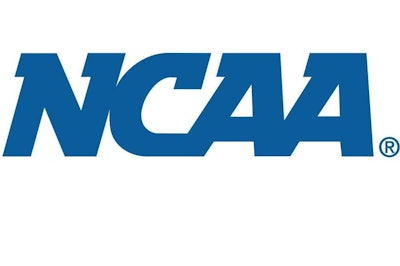
Division I football teams will not have annual signing and initial counter limits for the next two academic years, the NCAA Division I Council decided Wednesday.
Members issued a blanket waiver to allow schools to award scholarships based on the overall counter limit of 85. In the Football Championship Subdivision, the annual equivalency limit of 63 also remains in effect.
The change is intended to address the impact of the one-time transfer exception in the sport and the extended seasons of competition students received due to the impact of the COVID-19 pandemic. A short-term solution put in place last fall was scheduled to expire at the end of July. It allowed schools who lost student-athletes to replace seven of them if they left during specific time periods.
"Some schools hadn't given out all their scholarships and felt constrained by the annual limit," said Council chair Shane Lyons, athletics director at West Virginia. "This temporary change provides schools more flexibility and adds opportunities for incoming and current student-athletes to receive aid."
The Football Oversight Committee will collect and review recruiting data during these two years, as well as monitor transfer trends to inform potential future rule changes.
Additionally, Football Bowl Subdivision conferences will no longer have requirements to annually exempt their conference championship game from the maximum number of games a team is allowed in a season.
The Council also made it easier for FBS teams that play FCS opponents to allow the win to count toward its bowl eligibility. Council members reduced the financial aid requirement an FCS opponent needs to satisfy for a win to count toward the FBS team meeting the definition of "deserving team" for bowl eligibility. Instead of 90% of the maximum scholarships per year during a rolling two-year period, the requirement will be 80% of the maximum number of scholarships per year during that rolling two-year period. In 2020, the Council had granted a blanket waiver to allow the 80% requirement to be used.
Additionally, the Council established an exception to the contest status rule for years when the number of deserving teams is smaller than the number of bowl opportunities. If not enough teams qualify under regular criteria, teams will be selected using the following conditions. All teams that meet the first condition must be selected prior to teams that meet the second condition, and so on. The conditions are:
- Schools that would have met the FCS opponent exception but for the fact that one victory was against an FCS opponent that had not met the required scholarship average per year during the previous rolling two-year period (and the team's waiver request was denied).
- A school that participated in 13 regular-season contests and finished the season with six wins and seven losses.
- A school in its final year of reclassification from FCS to FBS that meets other requirements.
- A school that finished its season with a minimum of five wins that count toward the definition of a "deserving team" and a maximum of seven losses but achieved a multiyear Academic Progress Rate that permits postseason participation. Alternates identified pursuant to this condition shall be identified as eligible in descending order based on the multiyear APR.
- If multiple teams have the same multiyear rate, the school with the highest single-year rate in the most recent reporting year shall be eligible first. A team identified as an alternate must declare whether it will participate in a bowl game. An alternate that declares an intention to participate shall select an available bowl game in which to participate.
- If a school is unable to participate in a bowl game after accepting a bid, the bowl entity shall select an alternate from among the remaining eligible schools.
This model is similar to the blanket waiver that was approved for the 2021 season and to the legislation that expired in 2020, and it provides additional flexibility when teams are unable to participate in a bowl game after accepting a bid.
Council members also voted to allow schools to begin official preseason football practices 31 days prior to their first game. The decision affords additional flexibility in the preseason without changing the acclimatization period or the 25 on-field practice limit prior to the first game, providing schools the opportunity to provide student-athletes additional rest time.
Other legislative action
Council members also adopted proposals that:
- Prioritize treatment and education over punishment for student-athletes who test positive for cannabinoids during NCAA championships.
- Increase from 23 to 25 the members of the Committee on Competitive Safeguards and Medical Aspects of Sport.
- Allow schools to provide recruiting materials and send electronic correspondence to women's basketball recruits beginning June 1 at the conclusion of the sophomore year in high school.
- Allow students who have graduated and are seeking a second undergraduate or equivalent degree access to any transfer exception that applies to undergraduate transfer student-athletes.
- Allow women's beach volleyball teams to participate in up to four multiple-day pairs tournaments during the nonchampionship segment and to eliminate the prohibition on missed class time and the restriction to ground transportation associated with the nonchampionship segment.
Additionally, the Council voted to introduce into the legislative cycle a proposal that would make stunt an emerging sport for women.




































